Life is full of busy days. We go to work, hang out with friends, take care of our families, and complete many tasks. But in all this busyness, sometimes we forget to ask ourselves a very important question: “What do I truly want in my life?” It sounds like a big question, right? That’s because it is. This question is all about what makes you happy, what you dream about, and what you wish for when you have a quiet moment.
But why is this question so important? Because when we understand what we want, life becomes clearer and more enjoyable. We make better choices. We spend time doing things that make us happy. We also understand ourselves better.
Now, figuring out what we want isn’t always easy. It’s not like the answer will suddenly pop into our heads. But there’s good news. By asking ourselves some simple questions and thinking deeply about the answers, we can get closer to understanding our true desires.
In this Articl, we’re going to look at 15 of these questions. These are not tricky or complicated questions. They are simple, but they make you think. And as you think about them, you might start to see patterns. You might notice what’s missing in your life or what you have too much of.
So, if you’ve ever felt a little lost or if you’re curious about what your heart truly wants, this is a good place to start. Let’s go on this journey together, step by step, and see where it takes us.
What Do You Want in Life? 15 Questions and Tips to Figure It Out
Imagine you’re sitting in a vast auditorium, bathed in a gentle spotlight. A soft murmur resonates from the eagerly waiting audience, then hushes as I step forward. You can feel the collective weight of life’s ponderings and questions hovering in the air.
Today, we’re delving deep, journeying through a maze we’ve all navigated but never truly mastered. The question we often find ourselves pondering at different junctures of our lives: ‘What do I want?’ It sounds simple, yet it’s anything but.
There’s a knowing nod and murmur of agreement from the crowd.
Many of us spend our lives in pursuit, trying to answer this question. Yet, it’s not often we take a structured approach to this introspection. Let’s embark on this together.
1. Where Do You See Yourself in 10 Years?
When we ponder this question, we often jump to our professional lives. But stretch your imagination across the landscape of your existence – from family to personal growth, from travels to spiritual quests.
Example:
Sam works as a financial analyst, crunching numbers daily. When asked where he sees himself in 10 years, after a thoughtful pause, he envisions running his own consultancy firm. But that’s not all. He also dreams of backpacking across Asia, learning meditation in a monastery, and starting a family. While his career ambitions might be the primary drive, the dream of travel and seeking tranquility reflects his yearning for balance and cultural exploration.
TIP: Dream without restrictions. Your vision for the next decade is a mix of aspirations, experiences, and growth trajectories. It isn’t just about career advancement; it’s also about life enrichment.
2. What Moments in Life Made You Feel Most Alive?
Recall moments when your heart raced with excitement or when a serene happiness washed over you. It might be an achievement, a trip, a random act of kindness, or perhaps a challenging task. These moments mirror the experiences and passions that bring joy and meaning to our lives.
Example:
Rita, a software engineer, always felt most alive during her college theatre performances. The applause, the jitters, the camaraderie, all felt electric. Years into her steady job, she felt something amiss. Recollecting those ‘alive’ moments, she realized her creative side was stifled. Although she couldn’t pursue theatre full-time, she joined a community theatre group over the weekends. Soon, her days weren’t just about codes and algorithms; they had drama, scripts, and rehearsals, rejuvenating her spirit.
TIP: Your ‘alive’ moments are often signposts directing you towards passions you might have forgotten or overlooked. Recognizing them can bring profound clarity and zest to your everyday life.
3. What Do You Spend Your Spare Time Doing?
Our free time is a window into our genuine inclinations. When unburdened by obligations or expectations, the activities we choose can be highly revealing. They offer a sneak peek into our latent desires, hobbies, and passions.
Example:
Leo works long hours in a law firm, often bringing work home. However, every Sunday, come rain or shine, he dedicates a few hours to his little balcony garden. Over time, this sanctuary flourishes with blooming flowers, herbs, and even some vegetables. His colleagues are often surprised to find fresh basil or rosemary on their desks. This habitual gardening isn’t just a pastime. It speaks of Leo’s innate connection with nature, his need for grounding amidst urban chaos, and possibly, a deeper desire to nurture and create.
TIP: Your spare time activities are more than just hobbies; they are expressions of your unspoken desires and might hint at paths you’d be deeply satisfied following.
4. If Money Weren’t an Issue, What Would You Do?
Financial constraints and responsibilities often mold our decisions, sometimes sidelining our true aspirations. By momentarily eliminating this variable, we can dream uninhibitedly, laying bare our deepest wishes.
Example:
Mira is a successful marketing manager, drawing a six-figure salary, living in a swanky apartment. But if money wasn’t a concern, she confides, she’d be on a beach, running a cozy seaside café, hosting evening poetry readings and music jams. Her current job pays the bills and supports her family, but the seaside café speaks of her love for community, art, and the sea. While Mira might not quit her job immediately, realizing this dream might push her to take vacations at the beach, start hosting poetry readings in her city, or even plan a long-term shift toward her dream.
TIP: Daydreaming without financial constraints can be a powerful tool. It reveals a world molded purely by passion and desire, and even if it seems distant, it can guide smaller decisions in the present to achieve that dream in the future.
5. Which Tasks or Roles at Work Make You Feel Most Fulfilled?
Our professional environment is often a melting pot of various roles and responsibilities. While some tasks might feel tedious or monotonous, others might invigorate us, indicating our true inclinations and strengths.
Example:
Aidan is a team leader at a tech company. While his job involves administration, team management, and even coding, he finds the most joy when mentoring younger team members. The light bulb moments, their growth, and their successes bring him unparalleled satisfaction. This realization steers Aidan toward a more teaching-centric role, considering options like becoming a corporate trainer or even teaching tech in educational institutions.
TIP: The tasks that invigorate you are not just duties; they’re reflections of where your true professional passions might lie.
6. Who Are Your Role Models and Why?
Role models inspire us. By understanding why certain individuals resonate with us, we can glean insights into the values, achievements, or qualities we admire and wish to incorporate into our own lives.
Example:
Fatima has always admired Malala Yousafzai. It’s not just Malala’s activism but her resilience, determination, and ability to turn adversity into a global movement for education. While Fatima is an urban planner, this admiration pushes her to advocate for educational spaces in city planning, ensuring that educational infrastructure gets the focus it deserves.
TIP: The qualities we admire in others often reflect the values and aspirations we hold dear, guiding our personal and professional trajectories.
7. What are the Non-Negotiables in Your Life?
These are the core values, beliefs, or elements that you aren’t willing to compromise on, no matter what the circumstances. Recognizing them helps in making decisions aligned with your true self.
Example:
Lucas, a digital nomad, receives an offer for a high-paying job in a prestigious company, but it requires settling in one location. For many, this would be a dream come true. However, Lucas realizes that his freedom to travel and work from anywhere is non-negotiable. It’s not just about seeing new places, but the very essence of who he is. He values the flexibility and diverse experiences more than a stable paycheck. Acknowledging this, Lucas politely declines the offer, choosing to continue his nomadic lifestyle.
TIP: Recognizing your non-negotiables acts as a compass, ensuring you remain true to your essence and don’t drift away from what genuinely matters to you.
8. If You Could Change One Thing About Your Life, What Would It Be?
Life isn’t perfect. There are always aspects we might wish were different, situations we’d prefer to adjust. Identifying these areas can spotlight dissatisfaction or desires that might need attention.
Example:
Priya has a bustling life as a city journalist. She loves the thrill of chasing stories and meeting deadlines. But when asked this question, she admits wishing she had more time for herself. It’s not the job but the relentless pace that drains her. This revelation pushes Priya to renegotiate her work schedule, carving out “Priya Time” – dedicated hours for relaxation, hobbies, and self-care.
TIP: This question isn’t about fostering discontent but rather uncovering areas of growth or adjustment that can elevate the quality of your life.
9. When Do You Feel Most At Peace?
Amidst life’s hustle, there are moments of tranquility, when our spirit feels light, and everything seems in harmony. Recognizing these moments can provide insights into environments or activities that nourish our soul.
Example:
Carlos is a high school teacher. He feels most at peace not during the structured classroom sessions but during after-school clubs, where he interacts with students in a relaxed setting, sharing stories and experiences. This realization prompts Carlos to invest more time in such informal interactions, understanding that this balance between structure and fluidity is what brings him peace.
TIP: Identifying when you feel most tranquil can guide you towards creating environments or routines that foster inner harmony and well-being.
10. What Causes or Issues Are You Most Passionate About?
Our passions often manifest in the causes we support or issues that stir us. By recognizing these, we can align our actions, careers, or volunteer efforts towards areas that resonate with our core.
Example:
Layla, an architect, has always been passionate about sustainable living. Whenever there’s a discussion about environmental degradation or wasteful urban designs, she feels a surge of energy and a desire to make a difference. Recognizing this passion, Layla starts specializing in green architecture, aiming to design buildings and spaces that are not only functional but also eco-friendly.
TIP: Our passions are not just feelings; they’re calls to action. They can be channeled into impactful changes in our professions, communities, or personal projects.
11. What Skills or Talents Do You Have That You’re Not Using?
Every individual possesses a unique set of skills or talents. Sometimes, due to the trajectory of our careers or life choices, certain abilities remain underutilized or dormant. Revisiting them can open doors to new opportunities and fulfillment.
Example:
Nina works in corporate communications. It’s a role she excels in, but there’s a talent she rarely uses: illustration. In college, she’d spend hours drawing intricate designs and even considered going to art school. Reconnecting with this skill, Nina starts incorporating her illustrations into company presentations and communications materials. Not only does this set her work apart, but it also reignites a joy she hadn’t felt in years.
TIP: Your dormant talents aren’t forgotten relics; they are reservoirs of potential waiting to enhance your personal and professional life.
12. What Are the Lessons You’ve Learned from Past Failures?
Failures, as bitter as they might taste, are often our most insightful teachers. Reflecting on past setbacks can provide clarity about what you truly value, where you might have gone wrong, and how you’d like to proceed in the future.
Example:
Daniel once launched a startup, pouring all his savings into it. Unfortunately, due to market dynamics and some misjudgments, it failed. Reflecting on this setback, Daniel realized his passion wasn’t just in entrepreneurship but in the domain of health and wellness, which his startup overlooked. His takeaway? To align his future ventures with his genuine interests. A few years later, he co-founded a wellness platform, utilizing his entrepreneurial skills in a domain he was truly passionate about. This time, his endeavor thrived.
TIP: Failures aren’t just stumbling blocks; they’re stepping stones. They guide our future actions, ensuring we move forward with more wisdom and alignment.
13. What Do People Around You Appreciate You For?
Sometimes, we’re too close to the painting to see the full picture. The reflections of those around us can offer valuable insights into strengths, qualities, or talents we might overlook.
Example:
Sophie is an IT consultant. She’s technically proficient and loves problem-solving. However, during a team feedback session, colleagues consistently highlighted her empathetic nature and her ability to make clients feel understood and valued. This feedback made Sophie realize that while she loved tech, her true strength might lie in client relationship management. Embracing this insight, she started taking on more client-facing roles, blending her technical expertise with her natural people skills, leading to greater job satisfaction and career growth.
TIP: Feedback from others isn’t just praise or critique; it’s a mirror reflecting aspects of ourselves we might miss.
14. What Activities Make Time Fly By?
Engaging in activities where we lose track of time, often referred to as being in “flow,” points towards tasks that deeply engage and resonate with us. Recognizing these can provide cues about areas we might find fulfilling.
Example:
Elijah is an academic researcher. He’s competent in his field, but the moments when time truly flies are when he’s drafting and designing the presentation visuals for his research findings. The combination of creativity and conveying complex information effortlessly engrosses him. Recognizing this ‘flow,’ Elijah started offering workshops on effective scientific presentation design. It not only added a fulfilling dimension to his career but also provided a valuable service to his peers.
TIP: Those moments when time seems to vanish aren’t mere distractions; they’re indications of tasks or activities that deeply resonate with our core.
15. If You Were to Imagine Your Ideal Day, What Would It Look Like?
Visualizing our perfect day, from the moment we wake up to when we go to bed, can be a powerful exercise. It sheds light on environments, activities, and interactions that resonate most with us and can illuminate paths we might find deeply satisfying.
Example:
Mia is a financial analyst, crunching numbers day in and day out. Yet, when she envisions her ideal day, it begins with a morning yoga session, followed by writing for a couple of hours in a cozy café, an afternoon of volunteering at an animal shelter, and concluding with a gathering of friends at her home. This visualization doesn’t necessarily mean Mia wants a complete career shift. But it emphasizes her desires for physical well-being, creative expression, altruism, and community. Recognizing these elements, Mia starts incorporating bits of her ‘ideal day’ into her current life – attending weekend yoga classes, setting aside time for writing, and volunteering twice a month.
TIP: The ‘ideal day’ exercise isn’t about overhauling your life overnight; it’s about pinpointing elements that bring joy and fulfillment, then integrating them, bit by bit, into your reality.
Life is a tapestry of choices, experiences, dreams, and realities. While external factors often influence our paths, understanding our inner compass can lead to a journey that’s not just successful but also deeply satisfying. The 15 introspective prompts discussed aren’t just questions; they are bridges to our deeper selves, gateways to unexplored potentials.
As you reflect upon them, remember that life isn’t about finding definitive answers. It’s about continuously evolving, learning, and aligning with our ever-changing selves. The journey to understanding what you truly want in life is ongoing, but with introspection, openness, and a dash of courage, it’s a journey filled with profound discoveries and unparalleled fulfillment.



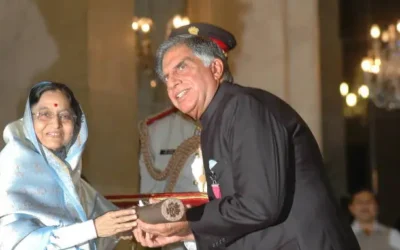
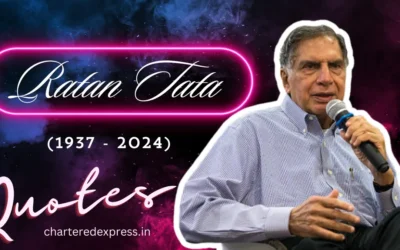
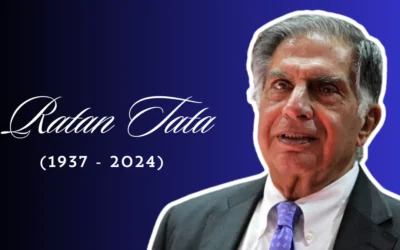






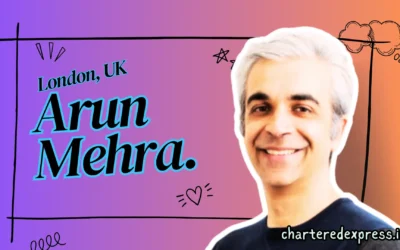





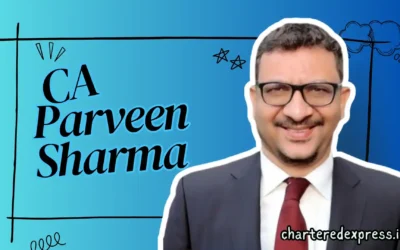

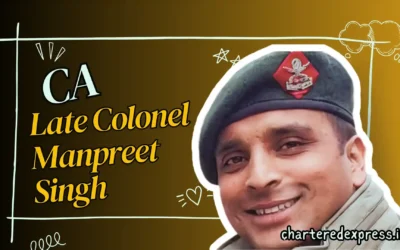
































0 Comments